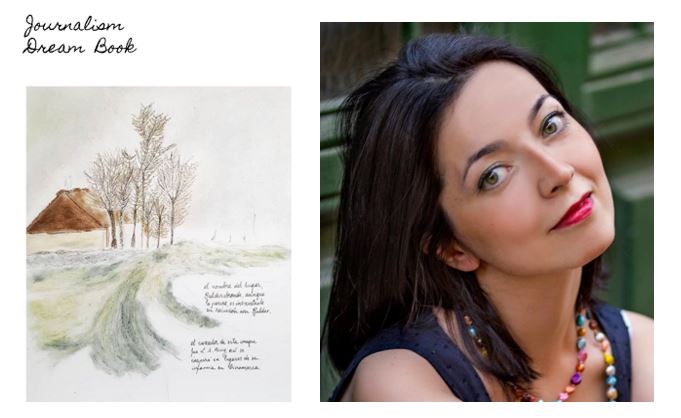In her 30-minute talk, Mercedes asked: Could and should journalism play a role in helping to build dialogue in contemporary communities? What skills from journalistic interview can become beneficial in the face of rapid social challenges?
Before the social media emerged, in journalistic work various voices were collected mainly through interviews: expert views, opinions or testimonies. The fast pace of the digital world has blurred the role and rules of interviews in journalism: there is too much posting and reacting, and not enough listening and reflecting. How could these elements be brought back and supported?
The project “Dream Book” emerged at Brenderup Højskole, a Danish educative community built on the pillar of cultural diversity. In this context, a field work of journalistic interviews was used to foster dialogue with the aim to recover the person-to-person talk that had been shadowed by the social media. Dream Book was conducted in English and rested on two pillars: attention and careful listening. The compilation of interviews served to open dialogues beyond the cultural stereotypes in this community.
Mercedes de Luis Andrés is a researcher at the Institute of Comparative Media and Communication Studies, Austrian Academy of Sciences. She is working within the research group Media Accountability and Media Change led by Tobias Eberwein.

